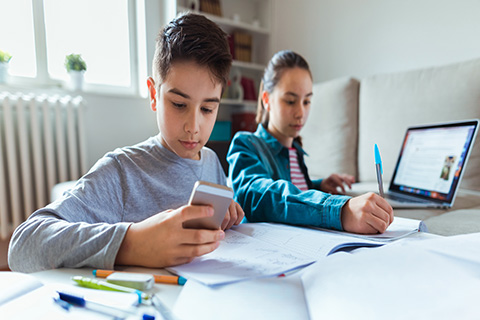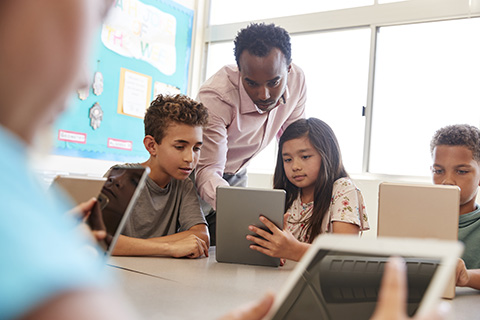The presence of cell phones in the classroom is a controversial topic, with divided opinions about their impact on student learning.
Some argue that cell phones can be distracting and hinder concentration in the classroom, while others claim that mobile devices can be tools that facilitate learning.
Why is the presence of cell phones in the classroom a disadvantage?
Those who oppose cell phones in the classroom argue that their use can distract students and negatively affect their academic performance. Cell phones can be used for texting, accessing social networks, playing video games, and watching multimedia content, which can take time and attention away from learning.
In addition, the presence of cell phones in classrooms also raises concerns about the use of these devices for cheating during exams and assessments. Students could search for answers on the Internet or share information quickly and discreetly through messaging.
Why shouldn’t cell phones be banned completely in the classroom?
On the other hand, some advocates argue that a total ban on cell phones in the classroom may be excessive. They note that mobile devices can be useful tools for conducting research, accessing additional information, taking notes, and collaborating in group activities.
In addition, cell phones can also be used as calculators, dictionaries, and voice recorders, giving students access to resources that can facilitate learning.

How can this disagreement be resolved?
In response to these arguments, some educators are reconsidering their policies on cell phone use in the classroom. Instead of banning them completely, they implement rules and guidelines on when and how they can be used.
This involves establishing designated periods for cell phone use, allowing students to use them for educational purposes during certain times of the class. Responsible and ethical use of mobile devices is also encouraged, educating students about the risks associated with their misuse.
In conclusion, the presence of cell phones in the classroom is a controversial issue that requires careful reflection. While their use may have potential benefits, there are also risks of distraction and misuse.
Ultimately, it is the responsibility of educators to strike a balance between allowing access to these technological tools and ensuring an environment conducive to learning. The implementation of clear policies and education on the responsible use of cell phones can be key to optimizing the benefits and minimizing the challenges that their presence represents in the classroom.
Continue your professional training
As technology continues to shape and transform our world, its impact on education is undeniable and profound. In an era where smartphones have become an integral part of our daily lives, it is crucial for educators to adapt and embrace this digital revolution. That is why the Universidad Internacional Iberoamericana (International Iberoamerican University, UNIB) is pleased to offer the Master in Education with a Specialty in ICT education, a program that provides future educators with the knowledge and skills necessary to take advantage of technology in the classroom and achieve a more participatory and effective learning.
Start your journey to become a tech-savvy educator who harnesses the power of this tool to transform learning. Join our illustrious group of teachers and experience the passion they have for education and their commitment to empowering students for a successful future.
In an ever-evolving digital age, don’t miss the opportunity to become an educational innovator that creates lasting impact.
Source: Why did UNESCO called for a reduction in cell phone use in all schools

